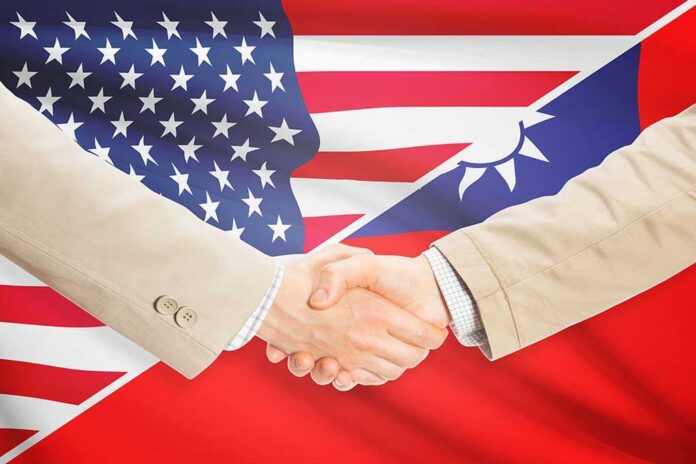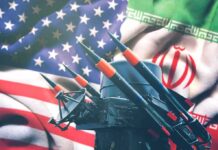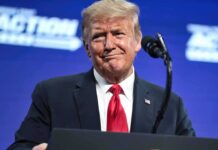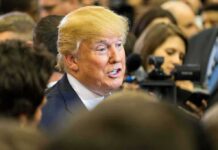
Taiwan pushes for strengthened military and drone technology partnerships with the US despite President Trump’s tariffs threatening their trade relationship.
Key Takeaways
- Taiwan seeks deeper security and technology cooperation with the US despite facing potential trade barriers from Trump’s tariff policies.
- President Lai Ching-te has held ten meetings with major Taiwanese business leaders to address concerns over US tariffs, demonstrating the severity of their worries.
- Taiwanese officials propose joint drone research and development to leverage US innovation with Taiwan’s manufacturing expertise.
- Approximately 60% of Taiwan’s exports to the US are semiconductor-related, making the technology sector crucial to their bilateral relationship.
- The US remains Taiwan’s primary security ally against Chinese aggression, making this partnership essential despite trade tensions.
Taiwan Navigates Trade Tensions with Security Focus
Taiwan is actively pursuing deeper military and economic cooperation with the United States despite facing potential barriers from President Trump’s recently imposed tariffs. This strategic balancing act reflects Taiwan’s determination to maintain strong ties with its most crucial security partner while navigating complex trade challenges. The island nation, continuously under threat from Chinese aggression, cannot afford to let economic disagreements undermine its security alliance with the US, making this diplomatic effort particularly significant in the current geopolitical climate.
“We have seen the whole world express concern over the tariffs issue. And our president, Lai Ching-te, has already met with the heads of major Taiwanese companies ten times, which also shows their great concern,” said Kung Ming-hsin, a Taiwanese official.
The impact of Trump’s tariff policies has reverberated throughout Taiwan’s business community, prompting unprecedented engagement from President Lai Ching-te. These tariffs, part of the President’s broader economic strategy to strengthen American manufacturing, have created uncertainty for Taiwan’s export-driven economy. However, rather than allowing these tensions to create a rift, Taiwanese officials are seeking creative solutions that could deepen technological and security cooperation while potentially mitigating trade concerns. Currently, the tariffs have been paused for 90 days, creating a window for diplomatic resolution.
Proposed Drone Technology Partnership
During a recent visit to Washington, Taiwanese official Kung Ming-hsin proposed a compelling framework for collaboration between the two nations, particularly in the security and technology sectors. His vision centers on leveraging each country’s comparative advantages: American innovation paired with Taiwanese manufacturing excellence. This approach could create a powerful synergy in developing critical defense technologies while strengthening industrial security for both nations. The proposal comes at a time when drone capabilities have proven decisive in modern warfare, as demonstrated in conflicts worldwide.
“We can have research and development together in the area of drones, for example,” said Kung Ming-hsin, a Taiwanese official.
The strategy outlined by Ming-hsin highlights a complementary relationship that could benefit both nations’ defense capabilities. By combining American technological innovation with Taiwan’s proven manufacturing infrastructure, both countries could accelerate the development and deployment of advanced drone systems. Such cooperation would serve multiple strategic objectives: strengthening Taiwan’s defensive capabilities against Chinese aggression, enhancing American access to critical manufacturing capacity, and deepening the bilateral security relationship through practical, tangible projects rather than merely diplomatic gestures.
Semiconductor Sector: The Foundation of US-Taiwan Relations
Taiwan’s semiconductor industry remains the cornerstone of its relationship with the United States, accounting for approximately 60% of its exports to America. These advanced microchips power everything from consumer electronics to sophisticated military systems, making Taiwan an irreplaceable link in global technology supply chains. The strategic importance of Taiwan’s semiconductor manufacturing capacity has only grown as supply chain resilience and technological sovereignty have become national security priorities. Any disruption to this vital trade relationship would have cascading effects through multiple American industries.
“The United States has advanced technologies, and Taiwan is very strong in having a mass production of this kind of advanced technologies,” said Kung Ming-hsin, a Taiwanese official.
This symbiotic relationship in the semiconductor industry provides a template for the drone technology partnership Ming-hsin has proposed. Both nations understand that despite periodic trade tensions, their technological and security interdependence requires ongoing collaboration. While President Trump’s economic policies aim to strengthen American industry, the unique capabilities Taiwan brings to the relationship cannot be easily replaced or developed domestically in the short term. This reality creates a strong incentive for both nations to find workable solutions that address trade concerns while maintaining their critical security partnership.


 News Editor
News Editor



























